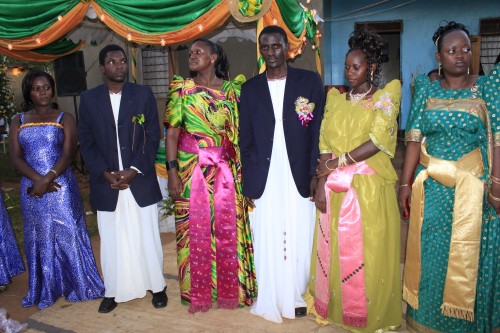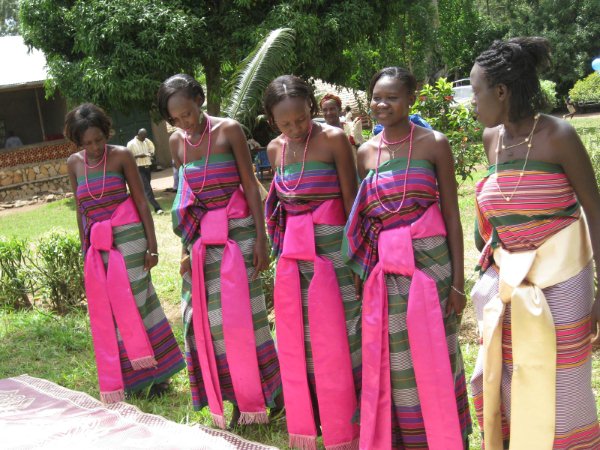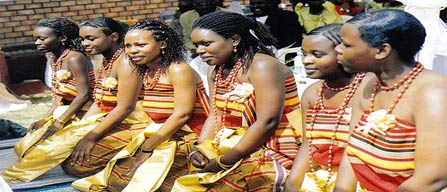Half a Century of the Domestic Relations Bill on the Shelf of Parliament: Uganda Women Call for Equitable Access to Justice
Jan 21, 2015
Story



“I am afraid of losing my 15 years of marriage because I will be sent away empty handed. I have toiled to acquire land and livestock in this home. Whenever I take a complaint of abuse to the police and village Council, they refer me back to my abusive husband. My relatives can not refund the dowry.” Tukei, a peasant in Nyero, expressed a sense of no belonging. Tukei once tried to return to her father but was sent back because he could not refund the dowry. Many women in Uganda (like Tukei) have sought justice from police but because of deep-rooted cultural practices are referred back to their husbands.
The Domestic Relations Bill has been awaiting approval in the House of the Parliament of Uganda for the last 47 years, and enacting it would improve the women status. It seeks to reform and consolidate the marriage and divorce law. It would also clarify article 33(1) of the constitution that accords women full and equal dignity of the person with men. This Bill spells out the rights protected during the duration and dissolution of marriage which include the right to marry, consent, marriage gifts, marital conjugal and property rights.
The Bill grants women the right to divorce spouses for cruelty, to choose their spouse and prohibits widow inheritance. It provides for equal division of property in the event of divorce. Under current law, a husband can seek divorce if the wife is adulterous whereas the wife can only be granted on the basis of aggravated adultery plus another offense (cruelty, incest and desertion). Thank-God, this law was declared unconstitutional in 2004.
Although Uganda has enacted several laws to improve the women situation, implementation is hindered by traditions and deeply entrenched patriarchal attitudes, especially in rural areas. Violence against women is common and perpetrators benefit from impunity, partly due to social attitudes condoning such violence. Law enforcement officials seldom intervene in domestic violence cases and wife beating is seen as a husband’s right. Statistically, 68 percent of women ever-married suffer domestic violence (UDHS, 2006).
In light of this, the Domestic Violence Act passed in 2009 is a law in name only. Domestic violence arises out of conflicts relating to rights and responsibilities in the home. Therefore, failure to pass the Domestic Relations Bill will affect the realization of the Domestic Violence Act thus rendering it redundant. Ugandan women do not have adequate access to justice, due to insufficient information on their rights and laws protecting them, social pressure, cost of legal procedures and inadequate law enforcement on women’s rights. The million dollar question is: why has the review of this Bill stalled and why has it received stiff resistance?
A contentious issue is property rights. No laws prevent women from owning land in Uganda, but the custom of male inheritance the majority of women are excluded from land ownership. While 80 percent of agricultural production is done by women, only 7 percent own agricultural land. Co-ownership of property by spouses will protect wives from being thrown out of homes they contributed to setting up and enable women to become economically empowered. In case of divorce, the Bill provides for family wealth sharing between husband and wife.
Other controversial concerns are polygamy and dowry. The Domestic Relations Bill does not prohibit polygamy nor payment dowry but provides for it to be non-refundable. The payment of bride price subjects women to slavery since their families cannot afford to refund the dowry. It devalues and reduces women to trade objects. “It is commercialized, highly exploitative and humiliating to women. This violates the constitutional provision that protect women’s rights.” wrote Judge Amos Twinomujuni in support of a Court Petition abolishing bride price in Uganda. The cultural practice of Banyankole, demands that a wife has penetrative sex 4 days after child-birth irrespective of the health risks involved. This Bill challenges such harmful and archaic culture.
Hon. Dora Byamukama, Legal expert and women activist, argues that the content of the law is not the source of controversy but that there are still myths and misconceptions about it. Therefore the role culture plays in attitude change and acceptability to change is significant. My work with the Sexual-Health-Improvement-Project (SHIP) is evidence that adolescent education on gender stereotypes and self esteem facilitates change in attitudes and traditions that discriminate and perpetuate violence against women.
Passing this Bill will create sustainable gender equality and enjoyment of full rights by all Ugandans, but will yield success only through strong political commitment to pass the Bill and educate communities about women’s rights. Until then can Uganda boast of having one of the best gender-sensitive constitutions in the world!
This article is part of a writing assignment for Voices of Our Future a program of World Pulse that provides rigorous new media and citizen journalism training for grassroots women leaders. World Pulse lifts and unites the voices of women from some of the most unheard regions of the world.




